Graeme Milbourne Clark AC (born 16 August 1935 in Camden, New South Wales) is an Australian Professor of Otolaryngology at the University of Melbourne. He invented a multiple-channel cochlear implant.
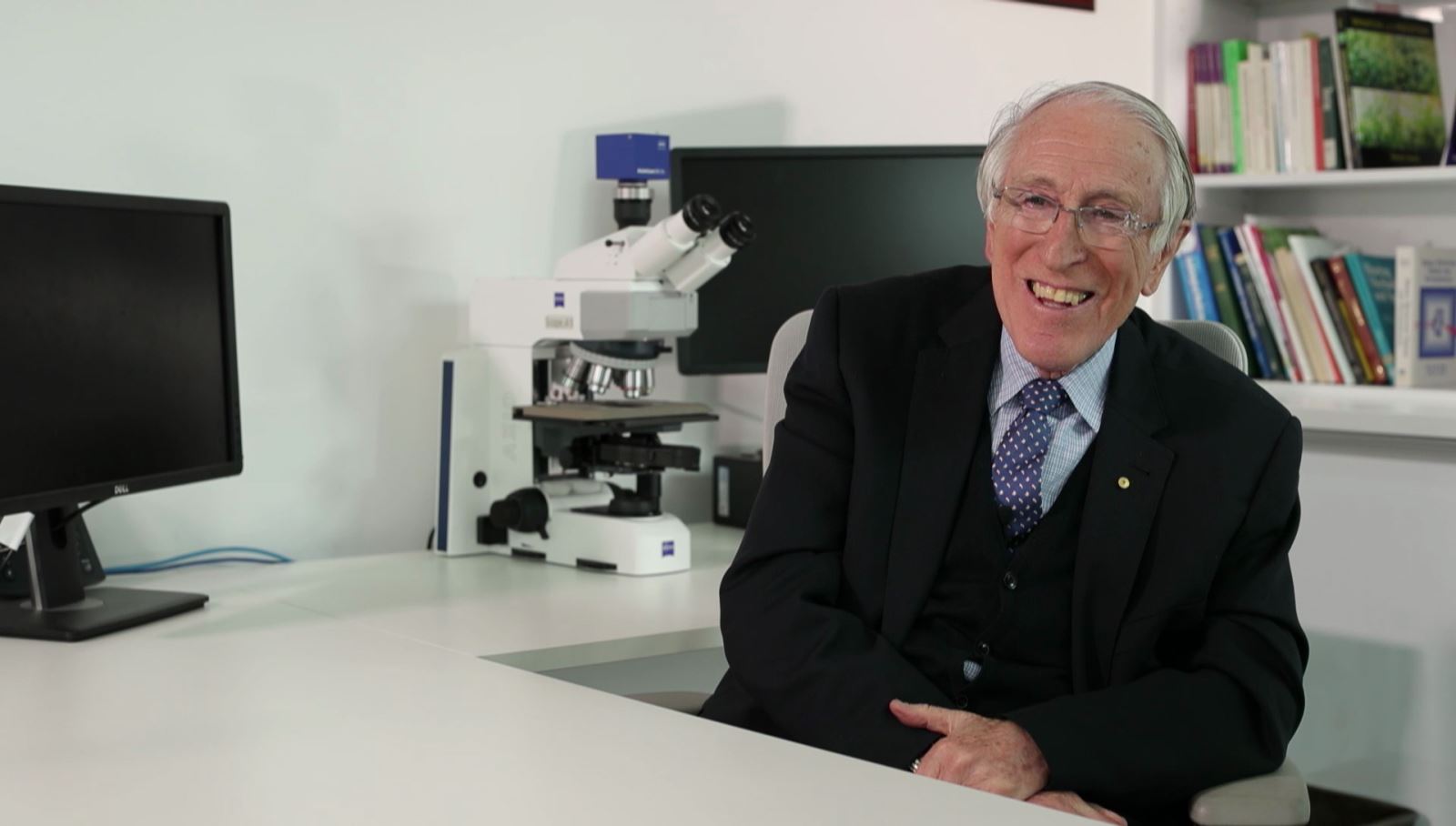
It was his deaf father's struggles that ignited this determination. Professor Clark grew up seeing the hardship of living in silence – including the frustration, anguish and resulting isolation. He also witnessed his father’s desire for a greater connection to others, and was determined to make it possible.
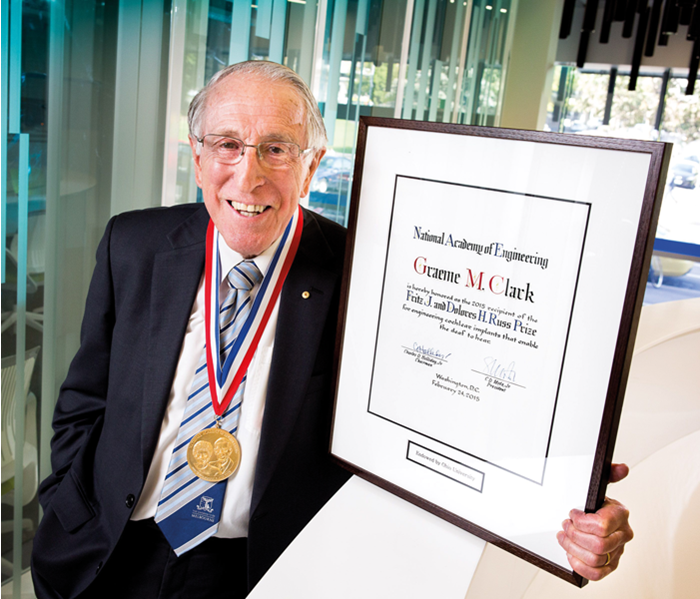
In the mid-1960s, while working as an ear surgeon in Melbourne, Australia, Professor Clark came upon a scientific paper by Blair Simmons in the US. It described how a profoundly deaf person received hearing sensations through electrical stimulation, but no speech understanding.
The seed was planted, and in 1967 he began researching the possibility of an electronic, implantable hearing device: a cochlear implant.
.png)
Though creating an implant seemed like an impossibly tall order, Professor Clark dedicated years to its research and development. His colleagues said a cochlear implant wouldn’t work because the inner ear was just too complicated.
Others said that there were unknown risks. There was also the lack of funding and the technological challenge of fitting electrodes into the tiny inner ear.
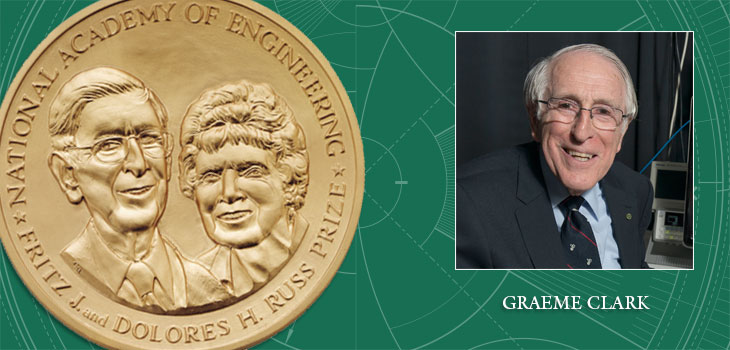
But the chance to give those living in deafness the gift of sound urged him on. For over a decade he continued his quest with a small team. Finally, his research was put to a test. In 1978, the first cochlear implant surgery took place.
And he and his dedicated team discovered in 1978 how speech could be coded with multi-channel electrical stimulation. Professor Clark’s determination had paid off.
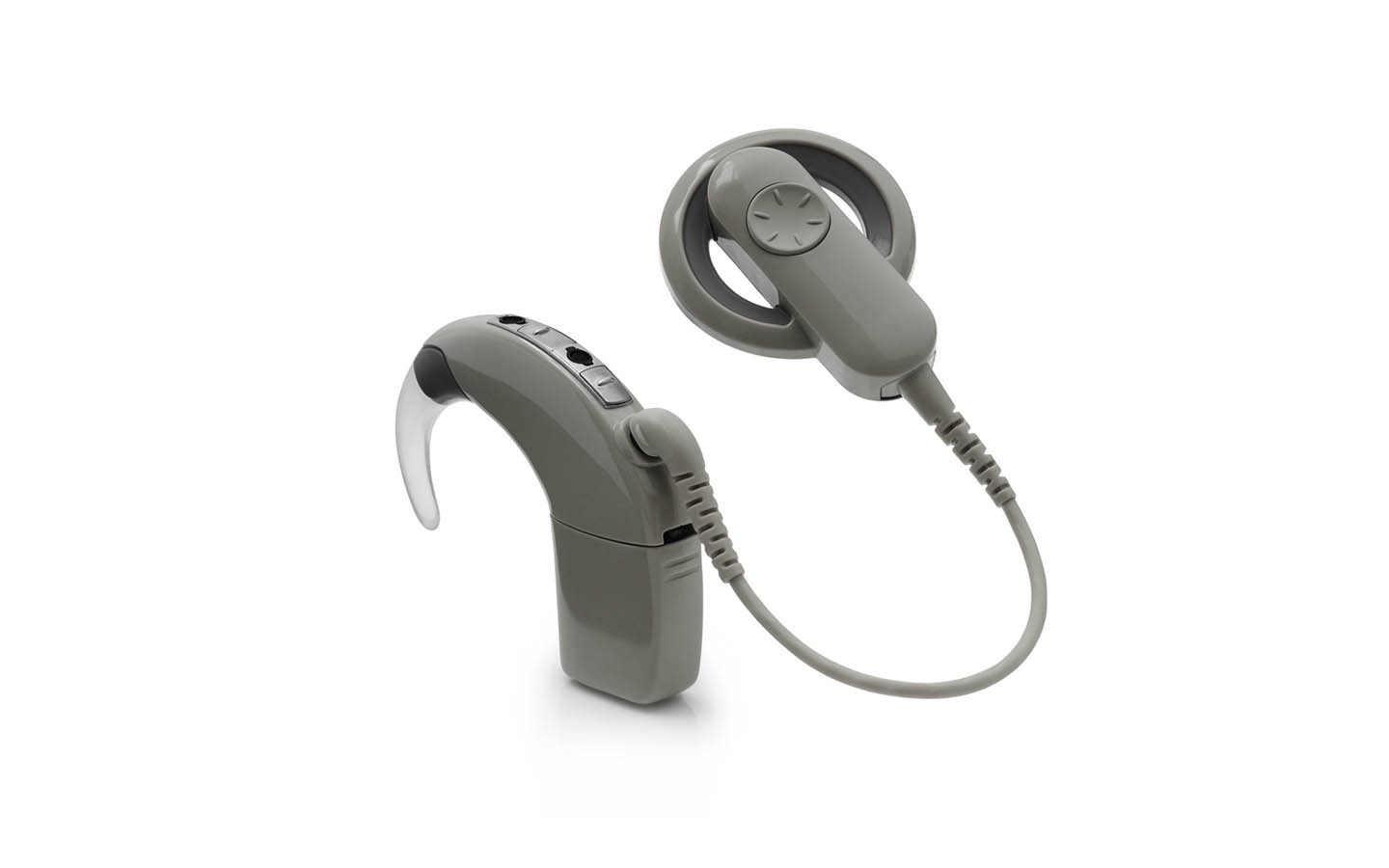
From his success, Cochlear Limited was born. Its purpose: to make Professor Clark’s innovative multi-channel cochlear implant commercially available all over the world. Today, hundreds of thousands of severely or profoundly deaf children and adults worldwide have received a cochlear implant from Cochlear.
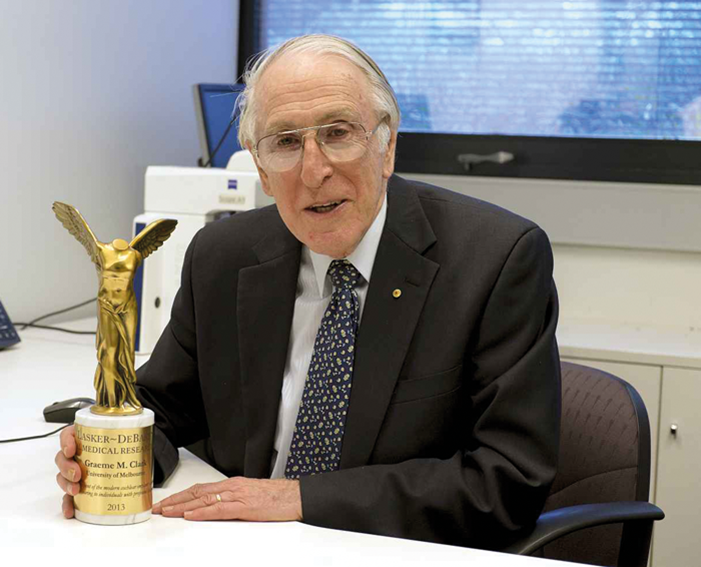
Thanks to his relentless dedication, they’ve all been given the opportunity to interact more fully with their world.
According to cochlear.com











